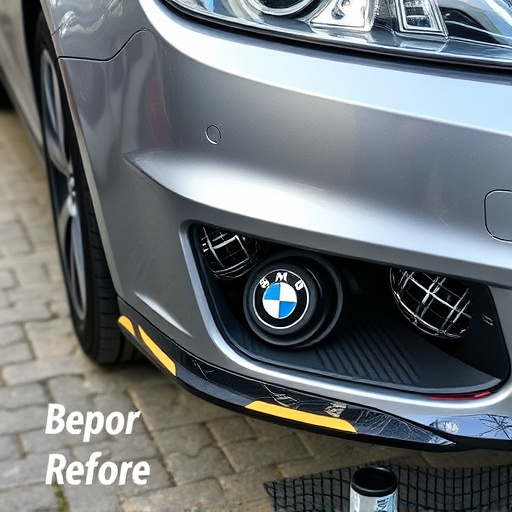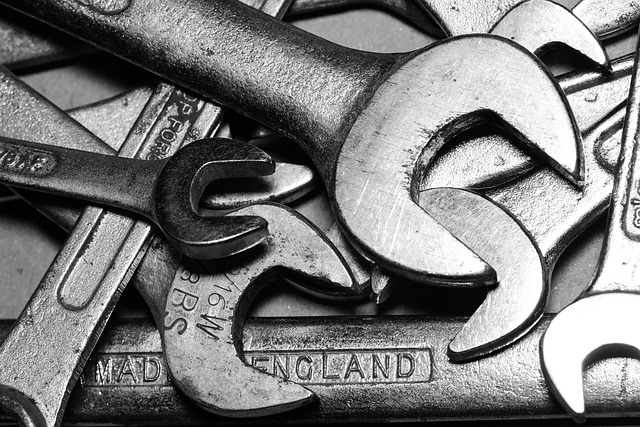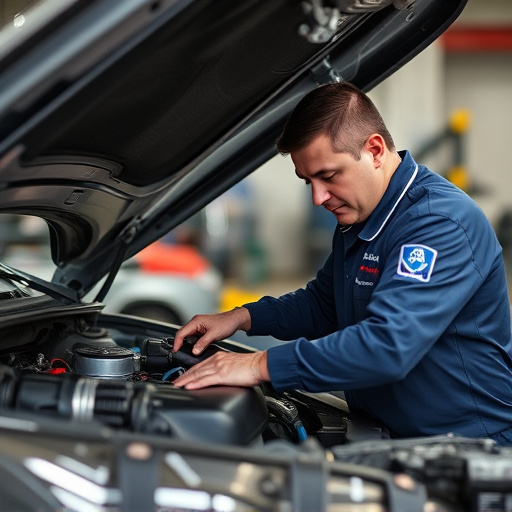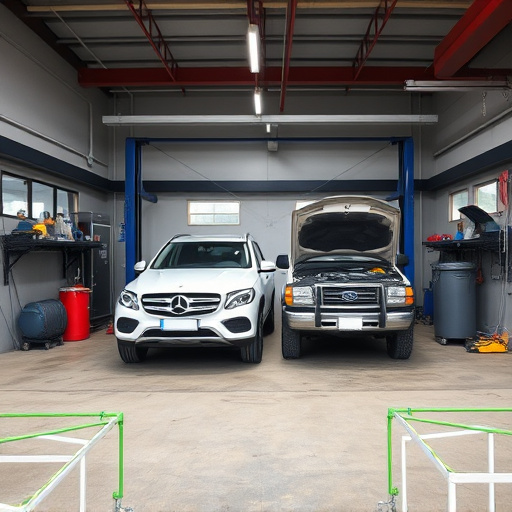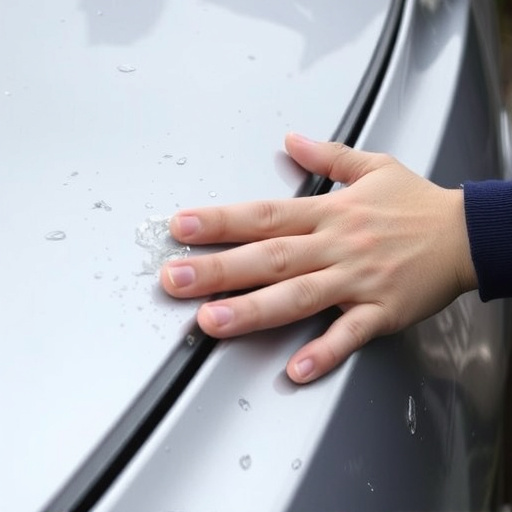Insurance companies benefit from partnering with EPA compliant body shops that meet strict environmental standards, safely handle hazardous materials, provide high-quality repairs, reduce future issues, and appeal to companies valuing both environmental protection and exceptional craftsmanship, enhancing their reputation as reliable repair solutions.
Insurance companies increasingly prefer EPA compliant body shop repairs due to their positive environmental and financial impacts. This preference is driven by regulatory changes and a growing awareness of sustainable practices. Understanding EPA compliance ensures that auto repairs meet strict environmental standards, minimizing pollution and waste. For insurance providers, this translates into reduced claims costs, improved loss ratios, and enhanced brand reputation. By promoting certified body shops, insurers can guarantee quality and safety, fostering trust among policyholders.
- Understanding EPA Compliance in Auto Repairs
- Benefits for Insurance Companies
- Ensuring Quality and Safety Through Certification
Understanding EPA Compliance in Auto Repairs
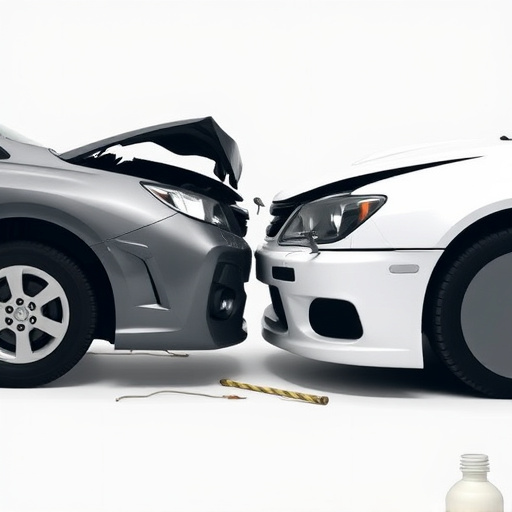
The Environmental Protection Agency (EPA) compliance is a critical aspect when it comes to auto repairs, especially for insurance companies and EPA compliant body shops. This regulatory framework ensures that vehicle maintenance and repair processes adhere to strict environmental standards designed to protect our air and water quality.
Insurance companies prioritize EPA-compliant body shops because they ensure proper disposal of hazardous materials, such as chemicals used in painting and bodywork, and minimize the release of harmful substances during the repair process. These eco-friendly practices not only benefit the environment but also contribute to safer working conditions for professionals in auto collision centers, addressing issues like air pollution and toxic exposure commonly associated with traditional automotive repairs, including hail damage repair.
Benefits for Insurance Companies
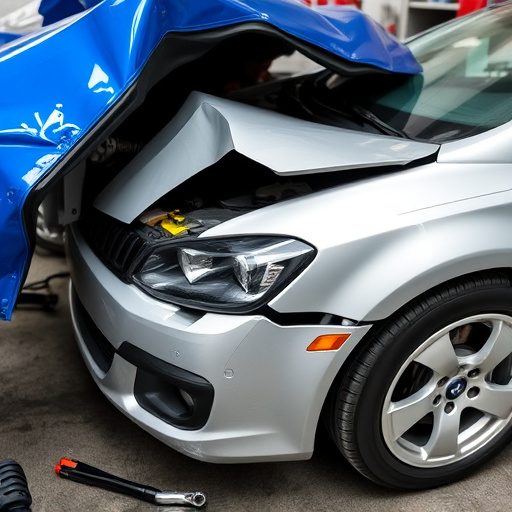
Insurance companies stand to gain multiple benefits by prioritizing EPA compliant body shop repairs. Firstly, these facilities adhere to stringent environmental standards, ensuring that the disposal and management of hazardous materials, such as asbestos or lead, are handled safely and responsibly. This reduces the insurance company’s liability related to ecological damage and public health risks.
Moreover, EPA compliance often translates into higher-quality repairs. Certified body shops employ trained professionals using advanced techniques and equipment, leading to more precise and durable auto glass repair, vehicle body repair, and auto body services. As a result, these repairs are less likely to require additional maintenance or cause future issues, ultimately saving insurance providers money in claims and reducing the need for costly follow-up work.
Ensuring Quality and Safety Through Certification
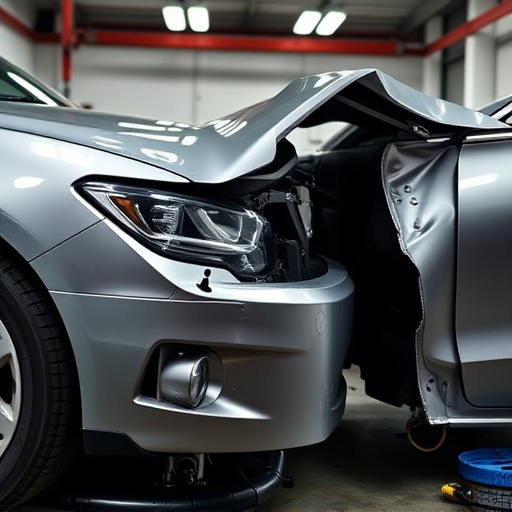
In the realm of vehicle repair, ensuring quality and safety is paramount. This is where EPA compliant body shops step up to the plate, offering a level of professionalism and expertise that aligns with stringent environmental standards. By adhering to EPA guidelines, these shops not only protect the environment but also guarantee the highest level of craftsmanship in every repair process. This commitment to excellence is what insurance companies appreciate—a promise of quality work that minimizes risks and ensures customer satisfaction.
EPA compliance goes beyond mere adherence to regulations; it signifies a comprehensive training program for technicians involved in auto repair services. These trained professionals are equipped with the knowledge and skills necessary to handle materials and processes safely, efficiently, and responsibly. This specialized expertise translates into better outcomes for insured vehicles, making EPA compliant body shops a preferred choice for insurance companies seeking reliable and safe vehicle repair solutions within their claims processes.
Insurance companies increasingly favor EPA compliant body shops due to their commitment to environmental protection, quality repairs, and safety standards. By adhering to these regulations, body shops demonstrate a thorough understanding of modern automotive technologies and methodologies, ensuring vehicles are restored to optimal condition while minimizing environmental impact. This alignment with industry best practices fosters trust between insurance providers and repair facilities, ultimately benefiting policyholders through efficient, reliable, and eco-friendly auto repairs.
